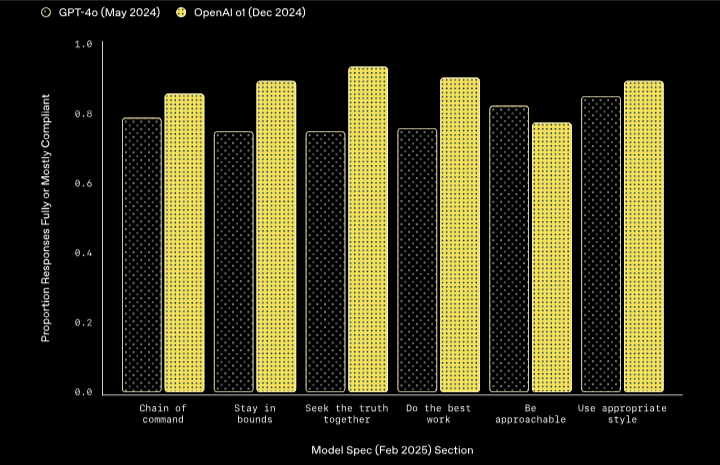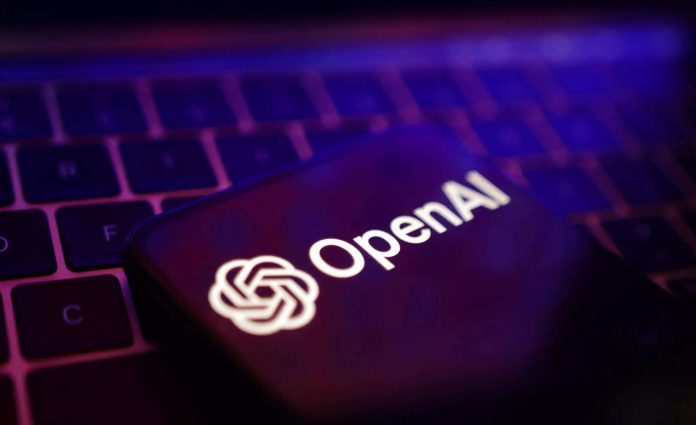OpenAI has revised its policy to emphasize that its AI models should “empower individuals to explore, discuss, and create without unnecessary restrictions, regardless of how difficult or controversial the subject may be.”
For instance, while the model will not provide detailed instructions for creating dangerous items or infringing on personal privacy, it is encouraged to offer insightful responses to sensitive political or cultural topics—without pushing any specific agenda, the company explained in a February 12 blog post.
This update is part of a broader series of changes to OpenAI’s Model Spec, a document that defines how the company trains its AI models. The Model Spec highlights core principles such as customizability, transparency, and “intellectual freedom.”
“We’ve strengthened the principle that no idea is inherently off-limits for discussion, as long as the model isn’t causing significant harm to the user or others (e.g., engaging in acts of terrorism),” the company stated.
The update to OpenAI’s Model Spec comes amid broader policy changes by major tech companies like Meta and Amazon, which are widely viewed as efforts to align with the new administration under President Donald Trump.
“Watching @potus more closely recently has really shifted my perspective on him (I wish I had done more of my own thinking and definitely fell into the npc trap),” OpenAI CEO Sam Altman wrote in a post on X last month.
OpenAI has emphasized that the updates to its Model Spec are informed by external feedback, as well as insights gained from its alignment research and real-world AI model deployment.
Additional updates to the Model Spec
OpenAI has also introduced a new guiding principle called ‘Seek the truth together,’ which mandates that its AI models must not deceive, whether by providing false information or by withholding important context.
“Much like a trustworthy human assistant, our models should help users make the best decisions for themselves. This requires striking a balance between (1) avoiding bias by remaining objective and open to exploring any topic from any viewpoint, and (2) understanding the user’s goals, clarifying assumptions and uncertainties, and offering constructive feedback when needed—requests we’ve heard and acted upon,” the updated Model Spec states.
The original Model Spec document stated that OpenAI was exploring methods for its AI models to responsibly “generate NSFW content in age-appropriate contexts through the API and ChatGPT.”
The updated version of the Model Spec has eased these restrictions, enabling content such as erotica and gore to be generated with ChatGPT without warnings, according to an ArsTechnica report.
However, OpenAI’s Usage Policies still prohibit the development of AI tools for minors that contain sexual content.
Assessing model compliance
Regarding how closely its AI models adhere to the principles outlined in the Model Spec, OpenAI stated that there have been notable improvements since last May.

“While some of this improvement can be credited to policy updates, we believe the majority results from better alignment. Although the progress is promising, we acknowledge there is still considerable room for growth,” it added.
OpenAI also mentioned that it will no longer publish blog posts for every update to the Model Spec going forward.



 Viesearch - The Human-curated Search Engine
Blogarama - Blog Directory
Web Directory gma
Directory Master
http://tech.ellysdirectory.com
8e3055d3-6131-49a1-9717-82ccecc4bb7a
Viesearch - The Human-curated Search Engine
Blogarama - Blog Directory
Web Directory gma
Directory Master
http://tech.ellysdirectory.com
8e3055d3-6131-49a1-9717-82ccecc4bb7a